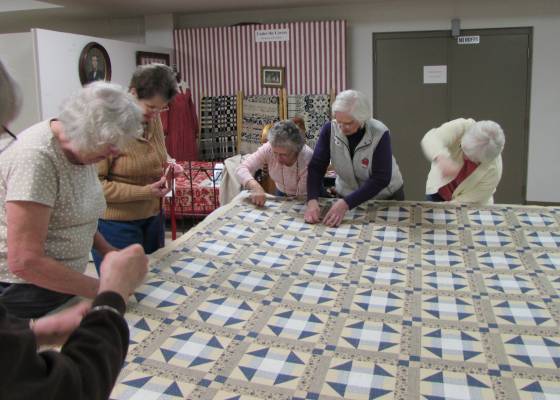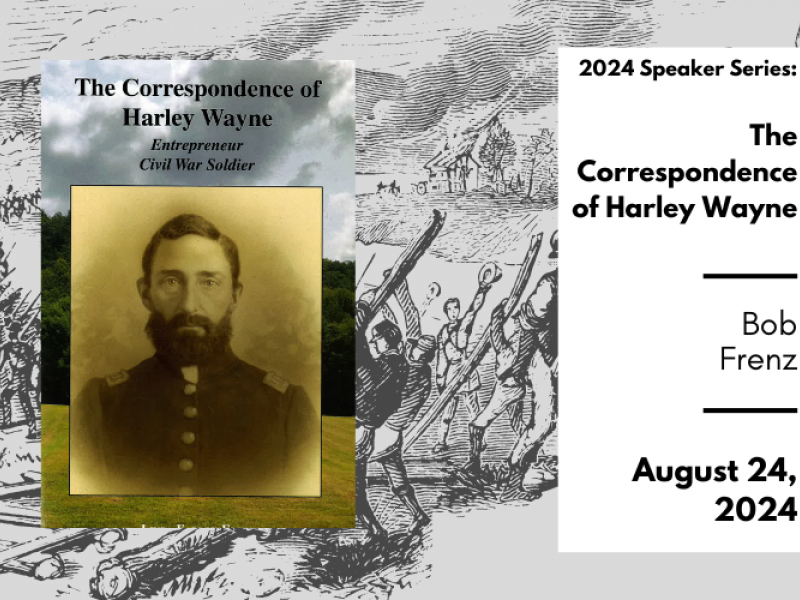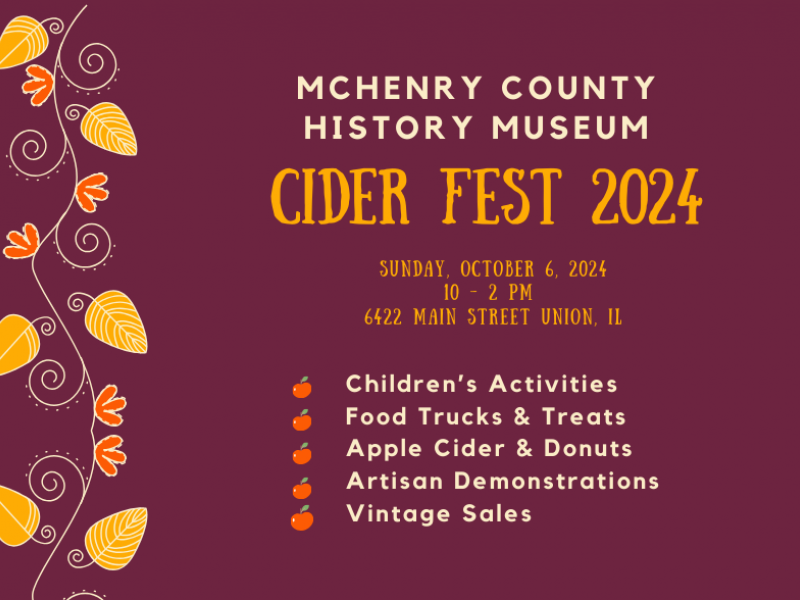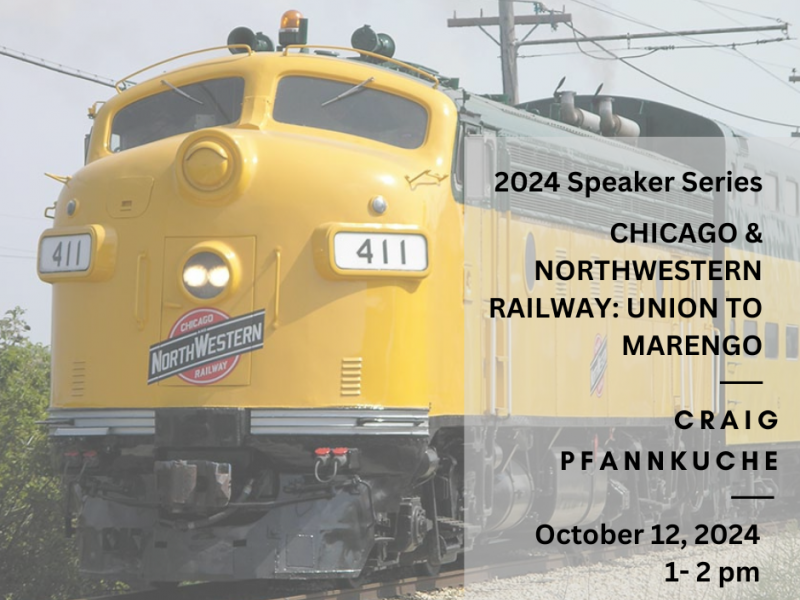Heritage Quilters

Join the Heritage Quilters each Wednesday morning throughout the year at the Society’s Washington Annex house at 17618 Washington Street. in Union. Quilters of varying experience levels meet from 9:30 a.m. to noon to work on a raffle quilt that benefits the not-for-profit Historical Society. For more information, phone (815) 923-2267 or email info@mchenrycountyhistory.org.
Members of the Gazebo Quilters Guild in Huntley launched a Quilts of Valor program in 2011 following a meeting at the McHenry County Historical Society Museum. Since then, the group of about 50 quilters has presented more than 2,200 patriotic quilts to deserving veterans. If you are a veteran or know of a veteran deserving of quilt, click HERE for an application.
The McHenry County Historical Society’s Heritage Quilters have made unique, hand-sewn quilts since 1987, but dedications began in 1990. The honorees are:
1990 - Leta Clark
1991 - no dedication
1992 - to the landscape and wildlife of our prairie state
1993 - one room school houses
1994 - Alice Clark
1995 - The citizens of McHenry County
1996 - Muriel Johnstone
1997 - Ruth Wirtel
1998 - Clara Vogel
1999 - Hanna Ames
2000 - Dori Buck
2001 - children of 21st century
2002 - Grace Moline
2003 - Nancy Fike
2004 - Arlen bird
2005 - Norma Anderson
2006 - Don Perkins
2007 - Beverly Fletcher
2008 - Carol Sek
2009 - Jean McCaffrey
2010 - Jan Knight
2011 - Bill Dysart
2012 - Sue Stanek
2013 - founding members of MCHS - 50th anniversary
2014 - Sandy Schweitzer
2015 - Carol Stone
2016 - Holly Scott
2017 - Alan Bird
2018 - Two World War I veterans: Ethel Byron Jansen and Harold S. McConnell
2019 - Ann Bornman
2020 - Mary O’Brien
2021 - Kurt Begalka
2023 - MCHS Founder Dorothy McEachren
Consider Joining The Heritage Quilters
Quilting is a rewarding hobby
Looking for opportunities to hone your quilting skills? How about the chance to work with others on a common project that perpetrates the quilters’ craft and supports the mission of the Historical Society? Perhaps you enjoy the socialization that quilting in a group provides.
Continuing a tradition begun back in 1984, quilters, want-to-be quilters and members of the McHenry County Historical Society Heritage Quilters gather Wednesday mornings throughout the year at the Society’s Washington Street Annex, located at 17618 Washington St. in Union.
Quilters of varying levels of experience meet from 9:30 a.m. to about noon to work on a raffle quilt that benefits the not-for-profit Historical Society. Beginners are very welcome. Learn to quilt while making new friends. For more information phone (815) 923-2267 or email at info@mchenrycountyhistory.org
In times past, quilts were made by women to provide necessary warmth for their families during cold and freezing winters. They were made from scraps and leftovers, and the job could be very boring and tedious. The environment is far from it nowadays. The amazing quilts designed by this group are queen sized, varied in patterns and include a dedication and date on the back. The Society then sells raffle tickets throughout the year, culminating is a celebratory drawing for the winner.
A Brief History of Quilting
Many women turned this necessary chore into a creative outlet to break the endless drudgery of 18th and 19th century life.They began cutting their scraps and sewing them into interesting and beautiful patterns, thus creating a more colorful and cheerful environment for their families---especially during the long and dull winters when these beautiful quilts were taken out of their storage trunks and placed atop the beds.
Once the quilt top was pieced, it was placed in a frame and the long but necessary process of quilting the layers together began. Some utilitarian quilts were tied to provide quick warmth. However, the beautiful tops created to brighten the colonial and frontier homes were often quilted with beautiful, elaborate and loving stitches, forming a treasure to be proud of and cherish.
Often family members, friends and neighbors would come to assist the housewife who had a quilt in her frame. This time spent in jointly working on a long and tedious job became a social outlet for the quilters. These informal and friendly acts of kindness developed into what was referred to as a "quilting" and later as a "quilting bee." When word was sent through the community that on a designated day the housewife with a newly stitched quilt top would host a "quilting" all the friends and neighbors brought food and came early.
The large frames could hold a dozen or so quilters who made quick work of such a lengthy job. But the most important aspect of the quilting was the opportunity for women to get together and catch up on all the latest news and local happenings. This was a much needed social outlet for women who were often left home alone to care for the children, the farm and the animals while their husbands or fathers went to the nearest town to do the trading. Some quiltings even included the men who would come in the evenings after the chores were done and the frame was then put away and a dance might be held with music being provided by anyone who had an instrument. Thus quilting became a very important part of our heritage. - Nola Thompson
Upcoming Events
 © 2024 MCHS- All Rights Reserved.
© 2024 MCHS- All Rights Reserved.





